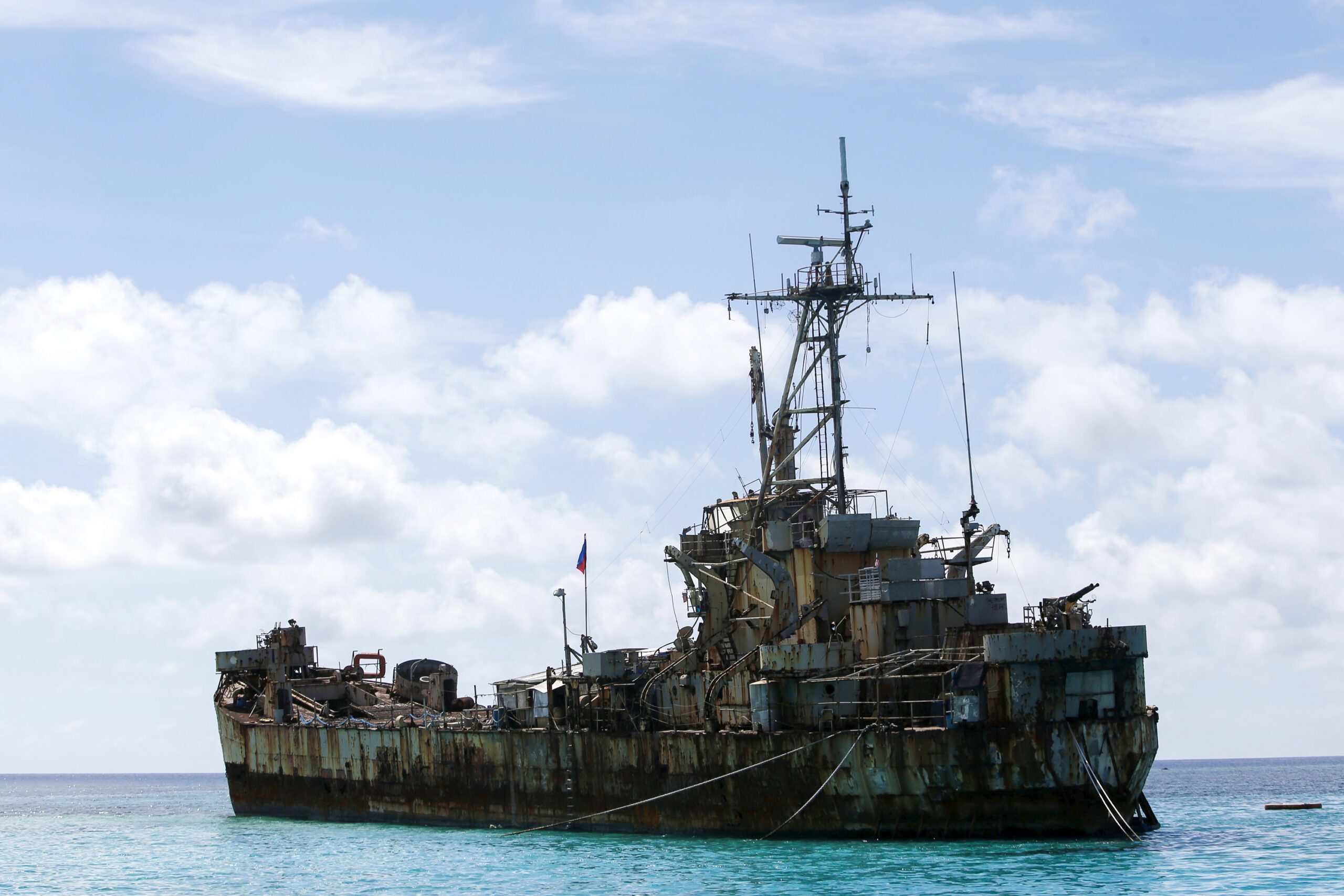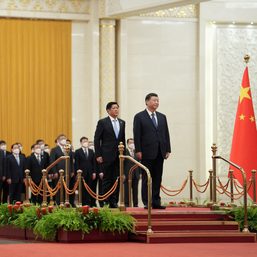SUMMARY
This is AI generated summarization, which may have errors. For context, always refer to the full article.

MANILA, Philippines – Both Japan and South Korea criticized “unilateral” actions that increase tensions in the South China Sea, days after Manila and Beijing blamed each other for two recent collision incidents close to Ayungin Shoal in the West Philippine Sea.

Japan, in a statement released by its Ministry of Foreign Affairs (MOFA), said it “opposes any unilateral attempts to change the status quo by force as well as any actions that increase tensions in the South China Sea.”
“Japan believes that the issue concerning the South China Sea is directly related to the peace and stability of the region and is a legitimate concern of the international community including Japan,” added Japan’s MOFA in its October 23, Monday statement.
Seoul, in only its second statement on tensions in the West Philippine Sea this year, said it was “concerned about unilateral actions that raise tensions in the South China Sea and threaten the safety of crew members.”
“We reaffirm our support for peace, stability and rules-based order in the South China Sea, as an important international sea lane of communications, and for the freedom of navigation and overflight based on the principles of international law, including UNCLOS [United Nations Convention on the Law of the Sea],” the South Korean Embassy in Manila said in a statement also on Monday.
During an October 22 routine resupply mission to the BRP Sierra Madre, the Philippines’ outpost in Ayungin Shoal, China Coast Guard and Chinese Maritime Militia tried to block Philippine vessels from bringing supplies and other materials to a small team of Marines stationed in the grounded World War 2 battleship.
The East Asian nations are next-door neighbors of China, which claims practically the entire South China Sea as its own despite a 2016 arbitral tribunal ruling that China’s claims in areas of its nine-dash line were contrary to the UN Convention on the Law of the Sea.
Peace in the South China Sea, including the West Philippine Sea, is a major security concern in the greater Indo-Pacific region, particularly for Japan and South Korea.
The leaders of Japan, South Korea, and the United States in August 2023 held a first-of-its-kind stand-alone gathering of the three nations. Experts saw it as sending a message of unity and cooperation amid China’s expansionism in the region.
In September 2023, more than a month after the meetings at Camp David, senior diplomats from South Korea, China, and Japan promised that its leaders would hold another trilateral meeting, a continuation of a yearly tradition that started in 2008 but stopped after 2019 due to the COVID-19 pandemic.
‘Spirit of Camp Cavid’
The October 2023 statements of Seoul and Tokyo echo the joint statement made by the three leaders after the Camp David summit.
“Recalling the publicly announced position of each of our countries regarding the dangerous and aggressive behavior supporting unlawful maritime claims that we have recently witnessed by the People’s Republic of China (PRC) in the South China Sea, we strongly oppose any unilateral attempts to change the status quo in the waters of the Indo-Pacific,” the three leaders – US President Joe Biden, President Yoon Suk Yeol of South Korea, and Japanese Prime Minister Fumio Kishida – said in a joint statement.
The three also rejected “the militarization of reclaimed features; the dangerous use of coast guard and maritime militia vessels; and coercive activities,” and expressed concern over “illegal, unreported, and unregulated fishing.”
In summits with the US, Japan, and South Korea in Jakarta during the Association of Southeast Asian Nations (ASEAN) Summit in September, Marcos thanked the three nations for “reiterating the importance of international law in maintaining stability in the Indo-Pacific during the meetings recently held in Camp David.”
In another summit with Chinese Premier Li Qiang in attendance, Marcos said that “practical cooperation in the maritime domain can only flourish with an enabling environment of regional peace, security, and stability, anchored in international law.”
Managing China
Manila has been trying to balance its relations with Beijing – pushing back in the West Philippine Sea, even as it fosters good ties in other aspects of its bilateral relationship.
But the Philippines has certainly not held back in criticizing China under Marcos’ presidency.
Following the October 22 collision in Ayungin, Defense Secretary Gilbert Teodoro called out the Chinese government for “deliberately obfuscating the truth” in pinning the blame on the Philippines for the incident.
Seoul has met similar struggles and points of conflict as Manila in handling China. Like the Philippines, South Korea has opposed China’s military incursions in South Korea’s exclusive economic zone.
South Korea also sees China as key in managing its volatile neighbor, North Korea. And just like Manila, Seoul has seemingly become closer to Washington DC in light of Beijing’s actions.
In the Indo-Pacific, the US is treaty-allies with only six nations, including the Philippines, South Korea, and Japan. As China grows more aggressive in staking its claim in the West Philippine Sea, the Philippines has also leaned on its allies and partners even harder. – Rappler.com
Add a comment
How does this make you feel?




![[Hindi ito Marites] Japan: From enemy to bestie](https://www.rappler.com/tachyon/2024/07/Hindi-ito-Marites-TC-ls-7.jpg?resize=257%2C257&crop=415px%2C0px%2C1080px%2C1080px)

![[Rappler’s Best] America](https://www.rappler.com/tachyon/2024/07/rapplers-best-america.jpg?resize=257%2C257&crop=458px%2C0px%2C1080px%2C1080px)



![[Just Saying] SONA 2024: Some disturbing points](https://www.rappler.com/tachyon/2024/07/TL-marcos-sona-points-july-23-2024.jpg?resize=257%2C257&crop=335px%2C0px%2C720px%2C720px)


There are no comments yet. Add your comment to start the conversation.